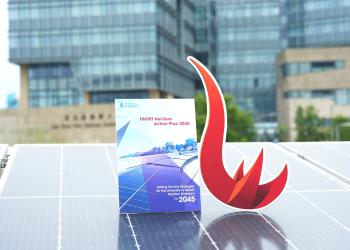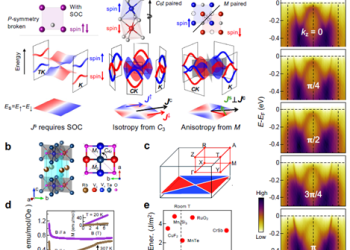Here's a Drink to Acid Test for Pseudoscience
By Jason Chan, Lecturer, Department of Chemistry, HKUST
Science is hailed by modern society as an academic discipline of strict moral grounding and high integrity.
Almost every one would place some degree of trust in scientific studies as they are deemed to represent knowledge derived from empirical evidence gathered through meticulous experiments.
Given its high social status, there is no doubt that people would feel inclined to trust a product or service backed up by scientific studies or claims.
Unlike medical products and services that are tightly regulated by civil authorities, commercial use of scientific claims is less severely vetted.
This has created a grey area for pseudoscientists, who devise clever scams that have the appearance of science but are full of errors and lies.
One can learn well from a few recent (and still ongoing) examples - the alkaline diet and alkaline water scam.
Hype about the "alkaline diet" began with a book called The pH Miracle by Robert Young.
Young claimed that ailments of the body, including cancers, resulted from an imbalance of pH.
He proposed that an alkaline diet could provide cures. However, his acid-base theory was only referring to foods rich in acid-forming elements (such as carbon, nitrogen and sulfur) or alkali-forming elements (such as potassium, calcium and magnesium).
In other words, he was promoting a plant-based diet over a calorie-laden greasy meaty diet.
A scientist would understand such health benefits had nothing whatsoever to do with the pH level in the body.
Young was later charged with practicing medicine without a license and defrauding cancer patients.
Alkaline water machines also follow from this line of pseudoscience quackery.
Sold for HK$30,000 to HK$50,000 per unit, these are filter units fitted with an alkalizing core commonly filled with lime (calcium hydroxide), a dirt cheap mineral that is sparingly soluble in water, and produce a form of lime water with pH levels of 11 to 12.
Water at such pH levels are highly alkaline and considered unsafe for drinking, but alkaline-water advocates would shamelessly sell their units to you with complete disregard for the necessity of maintaining gastric acidity, the pH regulatory functions of our kidneys and lungs and the highly controlled homeostasis maintained in our bodies.
Another example concerns false claims made by anti-vaccine and alternative medicine promoters and how they have managed to deceive so many that led to the recent resurgence of some highly alarming infectious diseases.
The lesson to be learned by the general public is to be vigilant of pseudoscience information spreading on social media sites.
It can sometimes be hard to discern fake news from true science for those without a science background.
Do some research on the internet for any suspicious topic by adding to the search term keywords such as "fake science" or "pseudoscience" to weigh its antithesis. If the claim is faulty, it is likely that someone would have debunked it somewhere using credible sources of information.
The article was published on The Standard on April 17, 2019.









